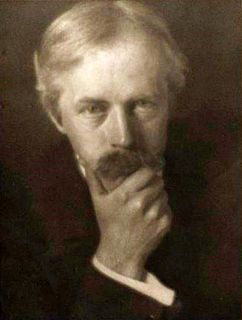A Quote by Simone de Beauvoir
Science condemns itself to failure when, yielding to the infatuation of the serious, it aspires to attain being, to contain it, and to possess it; but it finds its truth if it considers itself as a free engagement of thought in the given, aiming, at each discovery, not at fusion with the thing, but at the possibility of new discoveries; what the mind then projects is the concrete accomplishment of its freedom.
Related Quotes
No ideology can help to create a new world or a new mind or a new human being -- because ideological orientation itself is the root cause of all the conflicts and all the miseries. Thought creates boundaries, thought creates divisions and thought creates prejudices; thought itself cannot bridge them. That's why all ideologies fail. Now man must learn to live without ideologies religious, political or otherwise. When the mind is not tethered to any ideology, it is free to move to new understandings. And in that freedom flowers all that is good and all that is beautiful.
Dialectical thought understands the critical tension between "is" and "ought" first as an ontological condition, pertaining to the structure of Being itself. However, the recognition of this state of Being its theory intends from the beginning a concrete practice. Seen in the light of a truth which appears in them falsified or denied, the given facts themselves appear false and negative.
The error in positivism is that it takes as its standard of truth the contingently given division of labor, that between the science and social praxis as well as that within science itself, and allows no theory that could reveal the division of labor to be itself derivative and mediated and thus strip it of its false authority.
Evolution is one of the most powerful and important ideas ever developed in the history of science. Every question it raises leads to new answers, new discoveries, and new smarter questions. The science of evolution is as expansive as nature itself. It is also the most meaningful creation story that humans have ever found.
The source of innovation is freedom. All we have - new knowledge, invention - comes from freedom. Discoveries and new knowledge come from freedom. When somebody is responsible only to himself, [has] only himself to satisfy, then you'll have invention, new thought, now product, new design, new ideas.
I think of the old slavery, and of the way The Economy has now improved upon it. The new slavery has improved upon the old by giving the new slaves the illusion that they are free. The Economy does not take people's freedom by force, which would be against its principles, for it is very humane. It buys their freedom, pays for it, and then persuades its money back again with shoddy goods and the promise of freedom. "Buy a car," it says, "and be free. Buy a boat and be free." Is this not the raw material of bad dreams? Or is it maybe the very nightmare itself?
Rather let us imagine the anima mundi as that particular soul-spark, that seminal image, which offers itself through each thing in its visible form. Then anima mundi indicates the animated possibilities presented by each new event as it is, its sensuous presentation as a face bespeaking its interior image - in short, its availability to imagination, its presence as psychic reality. Not only animals and plants ensouled as in the Romantic vision, but soul is given with each thing, God-given things of nature and man-made things of the street.






































